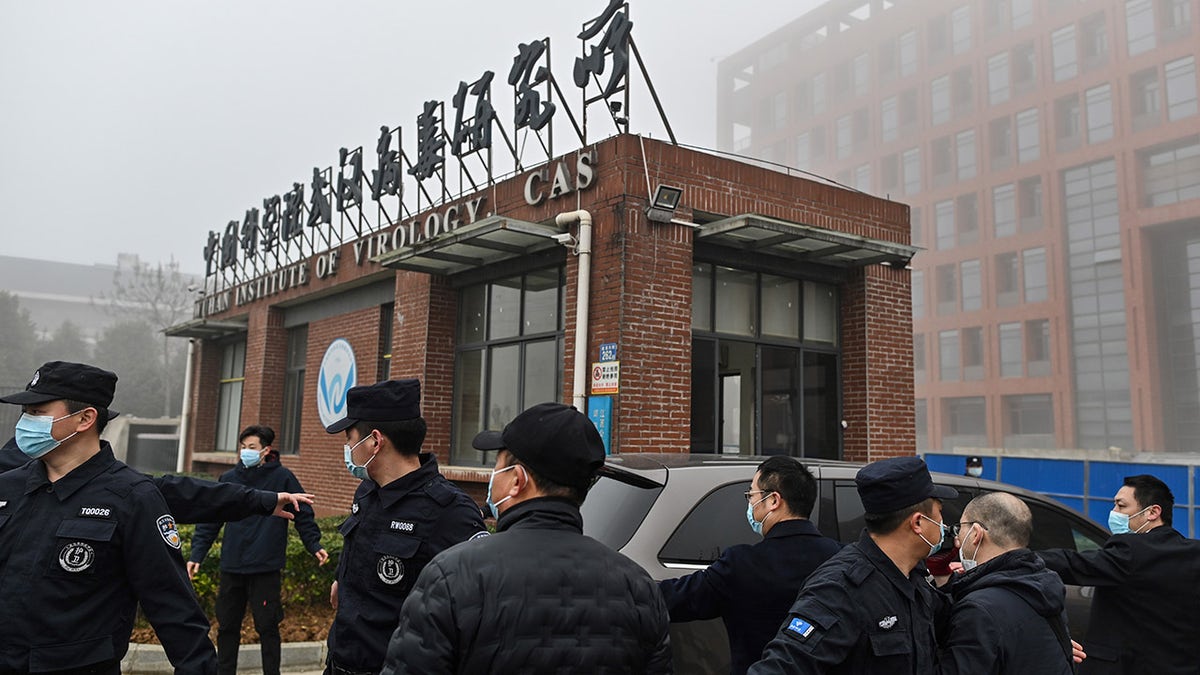W.H.O. Committee member: China covered up lab leak theory
W.H.O. Committee member Jamie Metzl speaks about China's cover-up of Wuhan lab leak
China on Friday reversed course again over whether it would support a second probe into the origins of COVID-19 by the WHO.
The WHO in February said its initial joint report with China into the origins of the pandemic found it "extremely unlikely" the virus came from a lab and advised "future studies." The organization said later in July that it would correct multiple "unintended errors" discovered in its report, according to The Washington Post.
Vice foreign minister Ma Zhaoxu told reporters on Friday that China opposes "political tracing" and would be abandoning the joint report" that the WHO began in January. "We support scientific tracing," he said, Agence France-Press (AFP) reported.

Members of the World Health Organization (WHO) team investigating the origins of the COVID-19 coronavirus, arrive at the Wuhan Institute of Virology in Wuhan, in China's central Hubei province on February 3, 2021. (Photo by HECTOR RETAMAL/AFP via Getty Images)
"The conclusions and recommendations of WHO and China joint report were recognized by the international community and the scientific community," he said, according to AFP. "Future global traceability work should and can only be further carried out on the basis of this report, rather than starting a new one."
JAMIE METZL: EXPERT COMMITTEE ‘ESSENTIALLY LIED’ ABOUT LAB LEAK AS PART OF ‘DEAL’ WITH CHINA
China reversed course later on Friday and pledged to participate in COVID-19 origin tracing when Ma said "China's stance on global origin tracing has been consistent and clear," according to Chinese state media outlet Xinhua. Ma, however, continued the narrative that dismissing the conclusions of the first report would be disrespectful to global scientists.
WHO SAYS COVID-19 ORIGIN NEEDS MORE STUDIES AS TOP EXPERT'S LAB 'CONCERN' MADE PUBLIC FOR FIRST TIME
"Any attempt to overturn or distort the conclusions of the joint study report is political manipulation and disrespect for global scientists and science," he said. "The label of 'refusing origin tracing' can never be pinned on China. Instead, it is very appropriate for the United States itself."
He also accused the U.S. of using coercion to pressure the WHO.

A joint WHO-China study on the origins of COVID-19 says that transmission of the virus from bats to humans through another animal is the most likely scenario and that a lab leak is "extremely unlikely," according to a draft copy obtained by The Associated Press. (AP Photo/Ng Han Guan, File)
Zeng Yixin, the vice minister of the National Health Commission, said in July he was "rather taken aback" that the plan includes further investigation of the theory that the virus might have leaked from a Chinese lab.
The WHO and China have faced strong criticism from around the world over their pandemic response, as China blocked WHO investigators from entering Wuhan for months in 2020. They finally arrived in mid-January of this year and released initial findings a month later.
US LEARNED SEVERAL WUHAN LAB RESEARCHERS SICKENED BEFORE COVID-19 OUTBREAK
The first cases of coronavirus were discovered in the Chinese city of Wuhan in December of 2019.
A May Wall Street Journal report citing previously undisclosed U.S. intelligence documents found some of the Wuhan Institute of Virology workers who fell ill in 2019 required hospital care, lending weight to what some have dubbed the "lab-leak theory."
On Thursday, the WHO in a new statement admitted that the lab-leak was not "extremely unlikely" after all.
CLICK HERE TO GET THE FOX NEWS APP
"On review of the phase one study report, WHO determined that there was insufficient scientific evidence to rule any of the hypotheses out," the statement continued. "Specifically, in order to address the ‘lab hypothesis,’ it is important to have access to all data and consider scientific best practice and look at the mechanisms WHO already has in place."
Fox News' Evie Fordham and The Associated Press contributed to this report.

